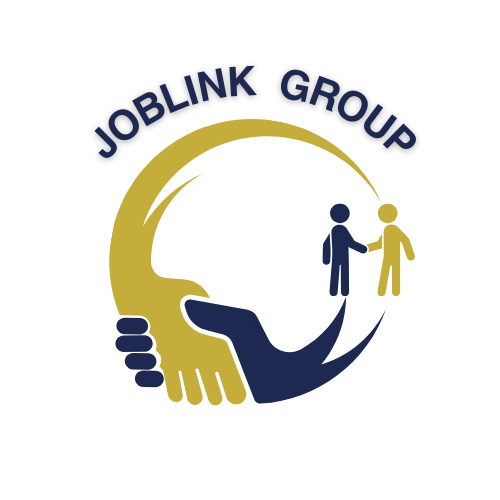How to Build a Strong Professional Network: Tips for Young Professionals
For young professionals, building a strong professional network is a crucial step toward career success. Networking opens doors to mentorship, job opportunities, and valuable industry insights, providing the foundation needed to grow and thrive in a competitive job market. Here’s a guide on how to build a robust professional network and use it to your advantage.
Why Networking Matters
Networking is more than just collecting business cards or adding contacts on LinkedIn; it’s about building genuine relationships that can support and propel your career forward. Here’s why having a strong network is important:
- Mentorship Opportunities: Connecting with experienced professionals in your field can provide valuable guidance and advice. A mentor can share industry knowledge, help you navigate challenges, and offer constructive feedback.
- Career Opportunities: A large network increases your exposure to job openings and career advancement opportunities. Many jobs are filled through referrals and word-of-mouth before they are advertised publicly.
- Industry Insights: Staying connected with peers and industry experts keeps you informed about the latest trends, tools, and technologies. This knowledge can help you stay competitive and up-to-date in your field.
- Skill Development: Learning from others’ experiences can offer new perspectives and ideas that might not be easily found in textbooks or online courses.
Where to Start Networking
For young professionals just starting, knowing where to begin can feel overwhelming. Here are some key places to start building your network:
- Attend Industry Events: Conferences, seminars, workshops, and trade shows are great places to meet people in your field. Even local networking events or meetups can provide valuable connections.
- Join Professional Organizations: Many industries have professional associations or clubs you can join. These groups often host events, provide access to exclusive resources, and offer opportunities to connect with like-minded professionals.
- Leverage Social Media Platforms like LinkedIn: LinkedIn is a powerful tool for professional networking. Use it to connect with peers, join industry-related groups, and follow companies and thought leaders in your field.
- Take Advantage of Alumni Networks: Your university’s alumni network can be a great resource. Reach out to former graduates who work in your field or attend alumni events to make new connections.
- Volunteer or Participate in Community Groups: Engaging in volunteer activities or joining community groups related to your profession can expand your network while allowing you to give back.
Tips for Effective Networking
Building a strong network is about quality, not quantity. Here are some strategies to ensure your networking efforts are effective:
- Make a Good First Impression: When meeting someone new, be professional and approachable. Introduce yourself clearly, express genuine interest in the other person, and maintain eye contact. Dress appropriately for the occasion and be mindful of your body language.
- Prepare an Elevator Pitch: Have a brief, compelling introduction ready that explains who you are, what you do, and what you’re passionate about. This can help start conversations and make you more memorable.
- Follow Up After Meeting New Contacts: Don’t let potential connections fade away after an initial meeting. Send a follow-up email or LinkedIn message within a day or two, expressing your pleasure in meeting them and suggesting ways to stay in touch.
- Maintain Long-Term Relationships: Networking isn’t a one-time activity. Keep in touch with your contacts by sharing industry news, congratulating them on accomplishments, or catching up occasionally over coffee or a virtual meeting.
- Offer Value, Not Just Requests: Networking should be a two-way street. Find ways to help others in your network by sharing relevant information, making introductions, or offering your assistance before you ask for favors.
The Role of Networking in Career Development
A strong professional network can be a catalyst for career growth in several ways:
- Finding Mentors: Mentors can guide your career development by sharing their experiences, helping you set goals, and providing feedback. They can also introduce you to other influential people in the industry.
- Learning About Job Opportunities: Many job openings are filled through referrals and recommendations. Being well-connected increases your chances of learning about unadvertised positions or getting a referral.
- Enhancing Skills and Knowledge: Engaging with professionals in your field can expose you to new trends, techniques, and tools. Attend webinars, join discussion groups, or participate in industry forums to continue learning from your network.
- Navigating Career Transitions: If you’re considering a change in role, industry, or location, your network can provide insights and advice. They may be able to connect you with people in the new field, offer recommendations, or even help you secure informational interviews.
Conclusion
Building a strong professional network is an ongoing process that requires effort and intentionality, but the benefits are well worth it. For young professionals, networking is a crucial tool for career development, offering access to mentors, job opportunities, and industry insights. By starting with industry events, social media, professional organizations, and alumni networks, and following effective networking practices, you can create meaningful connections that will support your career growth for years to come.
Remember, networking is about building genuine relationships, so focus on quality interactions and provide value to your connections. Over time, your network will expand and become one of your most valuable career assets.

